Now more than ever: the need to build better working relationships from our living rooms
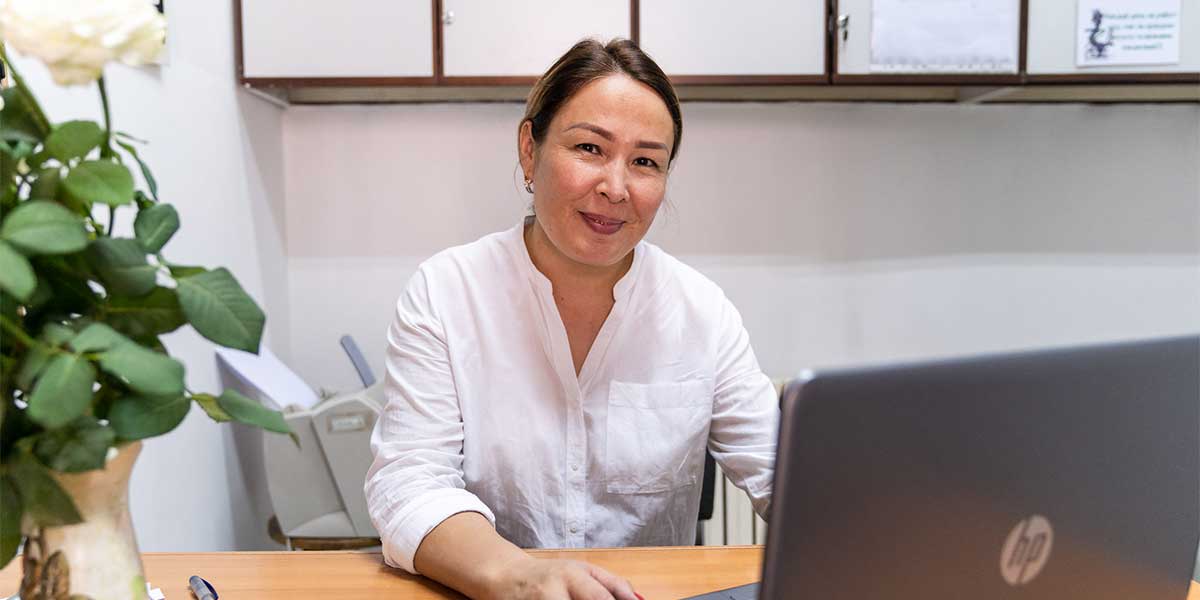
How do you get a group of more than 100 individuals from 15 organisations based all around the globe, the majority of whom have never met each other, to work together to positively strengthen the world’s education system? This is the challenge facing Schools2030.
To deliver on its mandate, Schools2030 will need to work effectively with foundations, schools, governments, students, families and more. The programme – with its very basis in opening up communities of practice and sharing knowledge – needed strong working relationships to succeed even before the pandemic struck.
So, with colleagues unable to travel to forums and events, the new stark reality created by COVID-19 quickly needed addressing – how can the Schools2030 community work together without the opportunity to be physically together? Luckily, the Aga Khan Foundation (AKF) had recently implemented Microsoft Teams and Accenture, the biggest single user of the platform, had plenty of experiences to share.
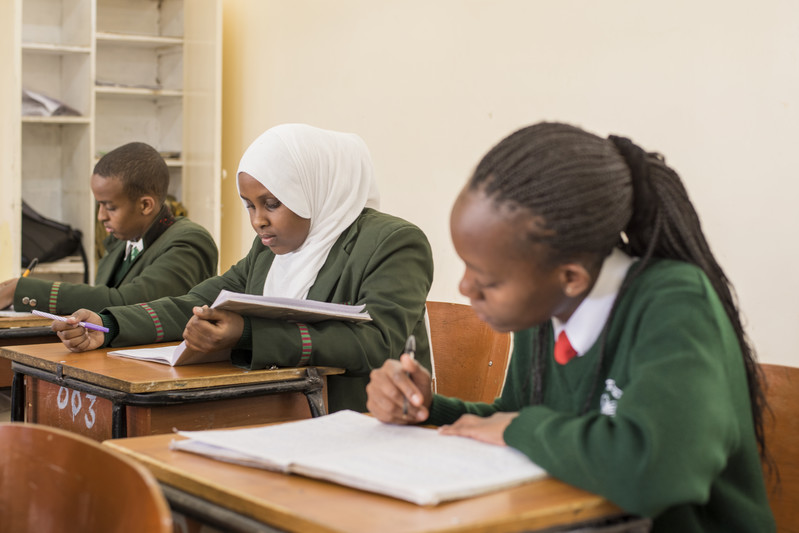
Accenture is a leading global professional services company, providing a broad range of services in strategy and consulting, interactive, technology and operations, with digital capabilities across all of these services. With 513,000 people serving clients in more than 120 countries, there can be no doubt that when it comes to being effective at working across vast teams and national borders, Accenture knows what it’s doing. It says a lot about the organisation that they have been in the top 50 of Fortune’s most admired companies in the world for 18 consecutive years.
Moreover, it is clear from a few moments looking at the company’s website, or even talking with its employees, that Accenture has a strong interest in being a socially responsible corporation, promising to “improve the way the world works and lives”. Indeed, Accenture has several ways they honour that commitment, one of which is Accenture Development Partnerships.
It was thanks to this strong sense of corporate social responsibility, that AKF and Accenture first began to discuss opportunities to work together, in particular on the Schools2030 programme, with a view to making it much more efficient at sharing learning across disciplines, across organisations and across borders.
“We collaborated with the Aga Khan Foundation to identify a number of opportunities that centred around internal communications and collaboration.”
Charlotte Aspinall, Consultant, Accenture
In light of the pandemic, it is interesting that this partnership had already been in discussion, but of course, the sudden global lockdown certainly thrust the need for better working practices well and truly into the spotlight. Charlotte Aspinall, Accenture consultant, who led the project, noted:
“COVID-19 accelerated the need to forge strong relationships internationally across a virtual environment.”
This approach has yielded exceptional results – a collection of resources and the creation of systems that aid each team’s collaboration across Schools2030 programme.
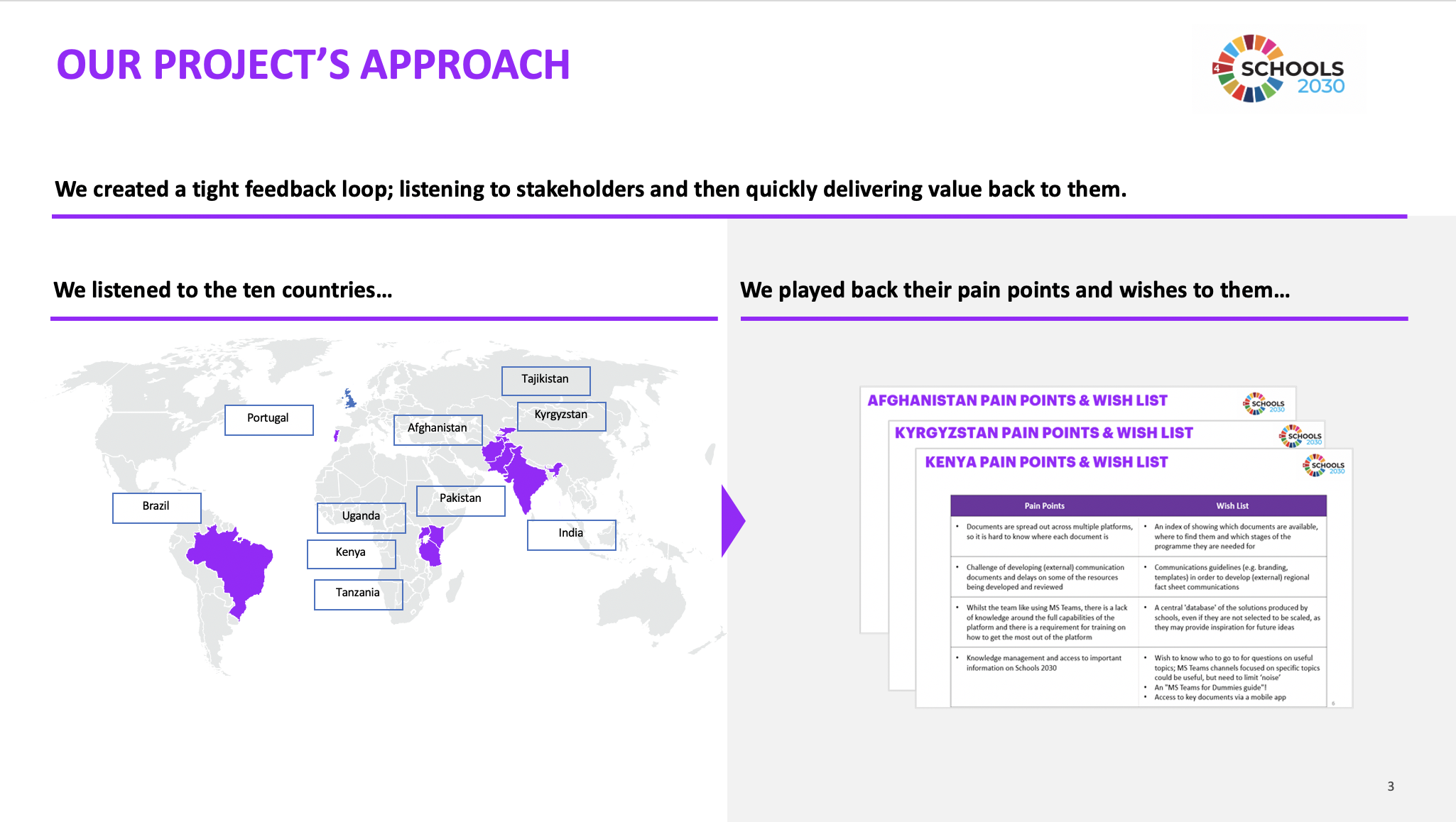
Some of these solutions are very simple, though this does not mean that they were any less effective. One such example was that an already existing weekly coordinators call designed to provide updates, was repurposed into an opportunity for each country team to introduce themselves, allowing their global colleagues to get to know who they were and what expertise they could offer.
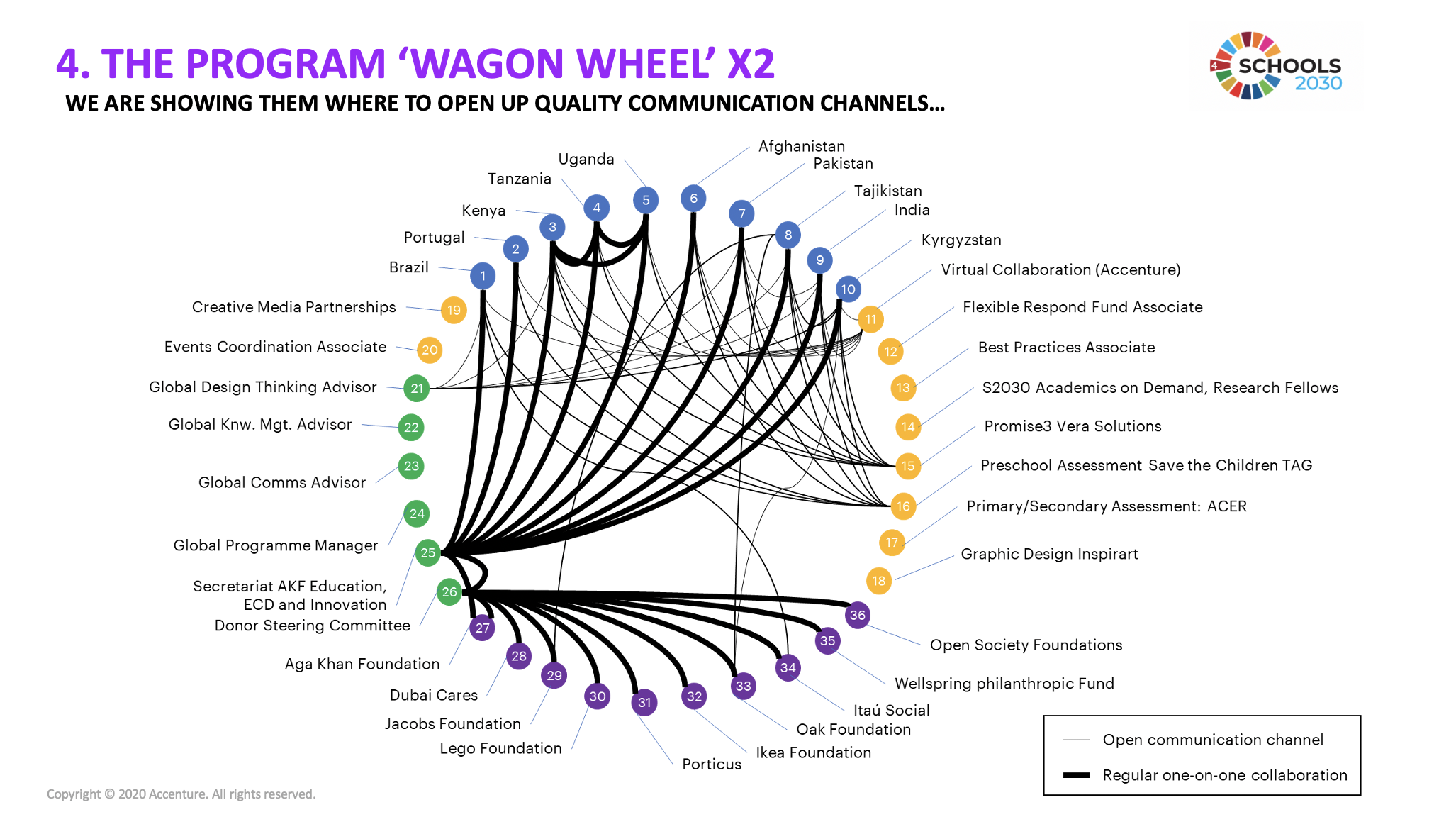
Other resources were the product of a thorough process that distilled complicated issues into user-friendly platforms from which to work. These included an integrated and interactive work plan, helping country teams manage their workflow and learn from others who had gone through those processes already. Or the programme ‘Wagon Wheel’, which analysed communication channels across the many teams and countries to determine where new connections were needed to enhance communication across the network.
“Thank you Team Accenture. We really appreciate your support in streamlining our resources, enabling cross-country (and in-country) collaboration and our favourite, the black belt challenge (learning while having fun!).“
Halima Shaaban, National Coordinator for Kenya
Whilst much of the work focused on improving collaboration and working practices between colleagues, Accenture also worked on improving programme staff’s understanding of donor needs, goals and desires, and whether the current communication ecosystem was working for them. Despite their response to AKF’s leadership on this project as being “overwhelmingly positive” there was of course opportunities for improvement, as Ronan Ferguson, Manager, Accenture Development Partnerships, went on to explain:
“Communication and knowledge management works effectively in an organisation or network if the people embrace the tools available. We created a ‘Black Belt Challenge’ to make network engagement more fun. This contributed to a six-fold increase in Microsoft Teams activity by the end of the project.”
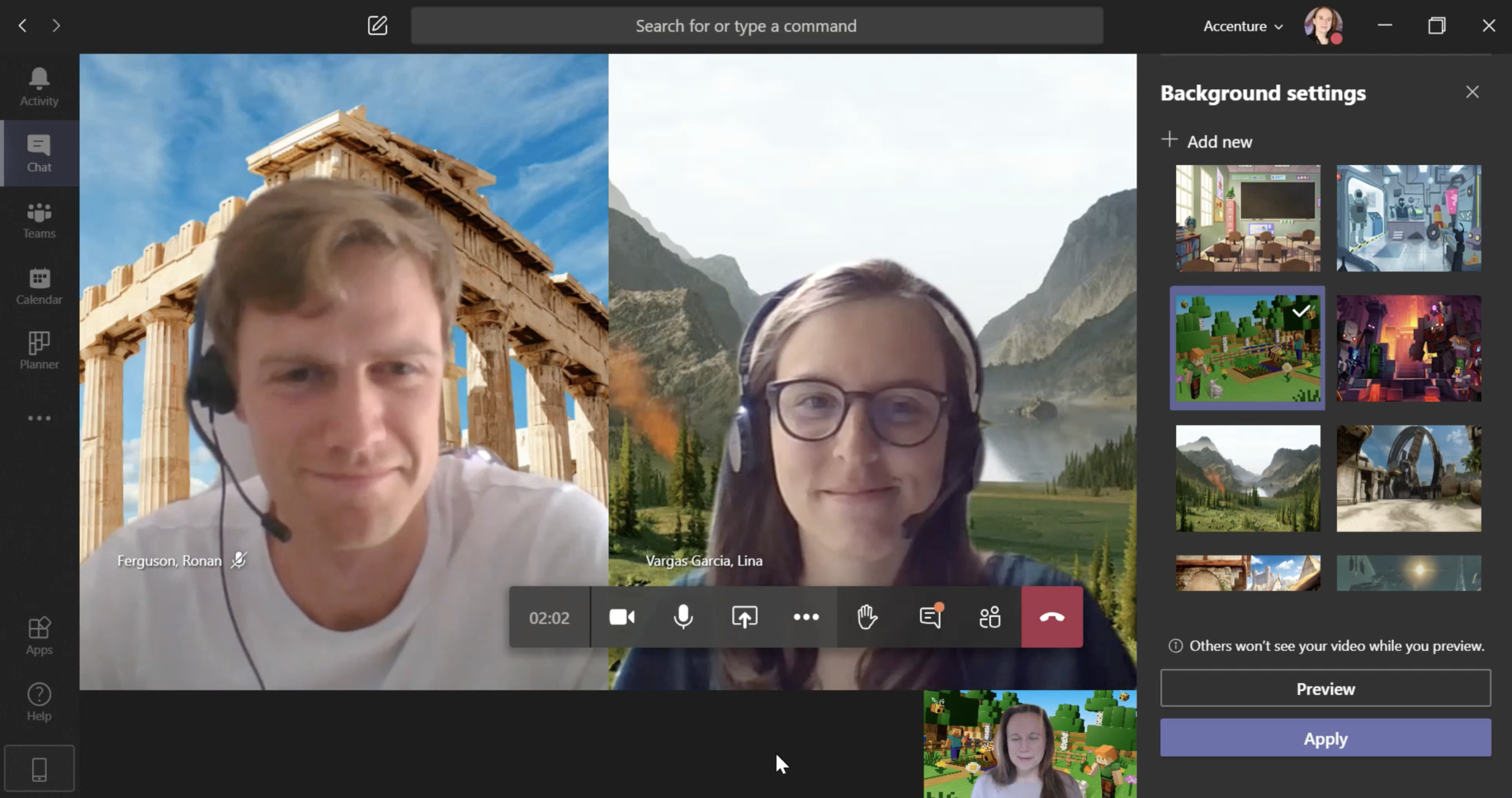
The Microsoft Teams ‘Black Belt Challenge’ is a series of video challenges that gave Schools2030 colleagues an opportunity to improve their skills and enhance their understanding of the Microsoft Teams’ functionality.
The pandemic accelerated the need for virtual collaboration. The work completed over the eight-week partnership will make the process of working across 10 countries and 1,000 schools easier. And the ultimate winners of all this work? The students themselves, the minds we hope to equip to shape a better tomorrow.
For further information contact: Markus Huurinainen markus.huurinainen@accenture.com
Schools2030 is a AKF’s new globally informed, locally rooted 10-year longitudinal action research and learning improvement programme working with 1000 pioneering pre-schools, primary schools, and secondary schools across 10 countries, searching for and supporting positive deviance about ‘what works’ to improve holistic quality learning for all.
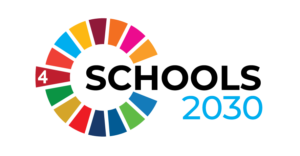

Support our work Your donations are helping us build a future where we all thrive together.